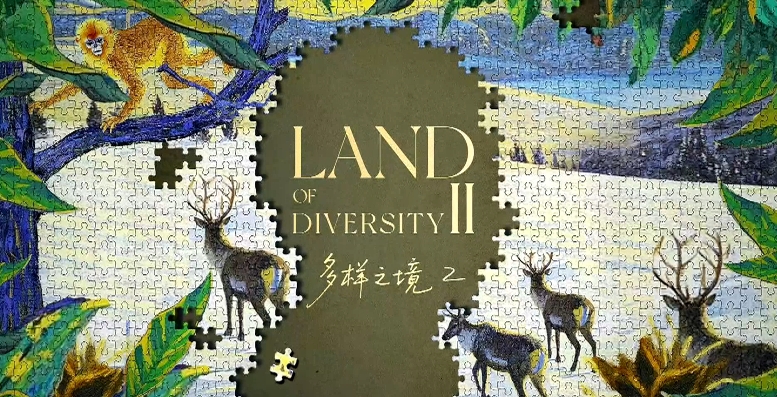CATTI-题库-真题-模拟-课程-直播
 翻译说
翻译说
 2025-06-26
2025-06-26

 1049次
1049次

英译中(一)
Every October sees the award of the "scientific Oscars": Nobel prizes. The science prizes established in Alfred Nobel's will are for physics, chemistry and"physiology or medicine". These three subjects are interpreted broadly, and their purview has shifted over time. But the prizes nonetheless still exclude huge tracts of science. Famously, mathematics has never been included. The environmental sciences -oceans and ecology--aren't covered, nor are computer science, robotics and artificial intelligence. These exclusions distort the public perception of which sciences are important.
Outsiders might guess that in science, the choice of winners in each field should be as clear-cut as in sporting contests, unlike the obviously more subjective prizes for literature and peace. But that's not the real ity. In the same years the awards trigger controversy and resentment. Since Nobel scientists generally aren't well-known personalities, and their achievements are often arcane, debate on their worthiness takes place within the specialist community, and only rarely percolates widely. What the public sees is simply the grandeur of the award announcements each year.
Also, the process of awarding the prizes has limitations that clash with the realities of scientific research. It's easy to agree on what scientific advances are important, but it's not so easy to apportion credit. An artist's creations are ephemeral but generally "individual". If they hadn't created a particular artwork, nobody else would have done so. But in many cases in science, if one researcher didn't make a specific advance, then sooner or later (and usually) another researcher would have.
The public perceives Nobel winners as "towering intellects." Some are, but others, even among those who have made undeniably epochal and "prize-worthy" advances, would not be so rated by their peers. Indeed, some of the most important discoveries have been serendipitous: for instance, neutron stars, and the cosmic microwave background-the so-cal led "afterglow of creation".Louis Pasteur argued that "fortune favors the prepared mind"; these scientists may claim for themselves greater luck—but not greater talent—than the average professor.
We need more and better ways of encouraging discovery and innovation. One possible route is "challenge prizes", which don't reward past success but incentivise future efforts to tackle an important problem. There have been prizes for sub-orbital space flight, driverless cars, robots that operate in hazardous environments and so forth. As compared with usual forms of funding, these prizes encourage maverick thinking, and they can also enhance public interest. Let's hope that some philanthropists will establish these, at least as a supplement to traditional prizes.
英译中(二)
Anyone who has learned a second language will have made an exhilarating (and yet somehow unsettling) discovery: there is never a one -to - one correspondence in meaning between the words and phrases of one language and another. Even the most basic expressions have a slightly different sense, issuing from a network of attitudes and ideas unique to each language. Switching between languages we may feel as if we are stepping from one world into another. Each language seems to compel us to talk in certain way and to see things from a particular perspective. But is this just an illusion? Does each language really embody a different world -worldview, or even dictate specific patterns of thought to its speakers?
In the modern academic context, such questions are usually treated under the rubrics of "linguistic relativity" or the "Sapir-Whorf hypothesis". Contemporary research is focused on pinning down these questions, or trying to formulate them in rigorous terms that can be tested empirically. But there is currently no consensus concerning connections between language, mind and worldview. The hypothesis has a long history, spanning several intellectual epochs, each with their own preoccupations. Running through this history is a recurring skepticism surrounding linguistic relativity, engendered not only by the difficulties of pinning it down, but by a deep - seated ambivalence about the assumptions and implications of relativist doctrines.
There is quite a bit at stake in entertaining the possibility of relativistic doctrines. It impinges directly on our under standing of the nature of human language. A long -held assumption in Western philosophy, classically formulated in the work of Aristotle, maintains that words are mere labels we apply to existing ideas in order to share those ideas with others. But linguistic relativity makes language an active force in shaping our thoughts.
Furthermore, if we permit fundamental variation between languages and their presumably entangled worldviews, we are confronted with difficult questions about the constitution of our common humanity. Could it be that there are unbridgeable gulfs in thinking and perception between groups of people speaking different languages?
The roots of our present ideas about linguistic relativity extend at least as far back as the Enlightenment of the late 17th to the 18th century. Enlightenment discussions were often couched in terms of the "genius" of a language, an expression first coined in French. The genius of a language was understood as representing its distinct character, the Je ne Sais quoi that constitutes the idiomatic in each idiom. This unique character was frequently taken to embody something of the national mentality of the speakers of a language.
中译英(一)
以“共享开放机遇,共创美好生活”为主题的第四届中国国际消费品博览会(以下简称“消博会”)在海南举办,集聚71个国家和地区超4000个消费品牌,为消费市场注入新活力。
消博会聚焦全球“新、奇、特”消费精品,有利于激发消费潜能、扩大国内需求,进一步满足消费者对美好生活的需求。同时,运用自贸港税收优惠、通关便利等政策,打造开放共享、深化合作的大平台。消博会连续四年成功举办,将“买全球+卖全球”的桥梁越做越大,为中国以及世界经济增长注入动能。消博会以及成为世界享中国开放机遇、开展经贸国际合作的重要平台,进一步坚定各方对中国持续扩大高水平对外开放的信心。
中译英(二) 在全民环保意识日益提高、国家加快释放绿色节能消费潜力的当下,废旧家电回收利用再次受到关注。它既有助于绿色低碳循环发展,又事关家电更新消费和居民生活实际。 2024年3月,国务院印发《推动大规模设备更新和消费品以旧换新行动方案》,要求到2027年废旧家电回收量比2023年增长30%。为实现这一目标,需要提高全社会对废旧家电回收利用的知晓度、认同度和参与度。 不少居民并不了解废旧家电可带来能源损耗和污染危害,有必要开展宣传和教育活动,深化政策宜讲和行为引导,提高公众的节能环保意识,增强其回收主动性。废旧家电回收利用,是推进“无废城市”建设的一个重要组成部分。拟从三方面着手。第一,加快完善废旧家电回收处理体系,建立绿色回收模式。第二,健全家电生产、销售和废旧家电回收、拆解、利用全产业链条。第三,搭建回收对接平台,促进生态保护和资源循环再利用。

 点赞(0)
点赞(0)

 收藏
收藏

军控、裁军与防扩散,寄托着人类铸剑为犁、干戈载戢的美好夙愿,承载着降低战争风险、消除安全赤字、促进世界和平的重要使命,关乎全球战略安全与人类共同福祉,日益成为国际社会共同期待。
国新办 2025-12-03 08:43:20
 收藏资讯
收藏资讯

今年是中国人民抗日战争暨世界反法西斯战争胜利和联合国成立80周年。在这一关键历史节点,习近平总书记胸怀人类前途命运、把握时代进步潮流,在“上海合作组织+”会议上郑重提出全球治理倡议,为解答“构建什么样的全球治理体系、如何改革完善全球治理”的时代命题亮明了中国方案。
外交部 2025-11-13 09:12:08
 收藏资讯
收藏资讯

地球是人类赖以生存的家园,应对气候变化、推动可持续发展关系人类前途和未来。人类进入工业文明时代以来,在创造巨大物质财富的同时,也加速了对自然资源的攫取,打破了地球生态系统平衡,人与自然深层次矛盾逐步凸显。近年来,气候变化不利影响日益显现,全球行动紧迫性持续上升。
国新办 2025-11-12 10:02:52
 收藏资讯
收藏资讯

First of all, I have the honor to convey the best wishes from President Xi Jinping to Brazil for hosting this Summit. President Xi Jinping highly commends the important contributions made by the Brazilian Presidency to global climate governance, and wishe
新华网 2025-11-12 10:00:23
 收藏资讯
收藏资讯